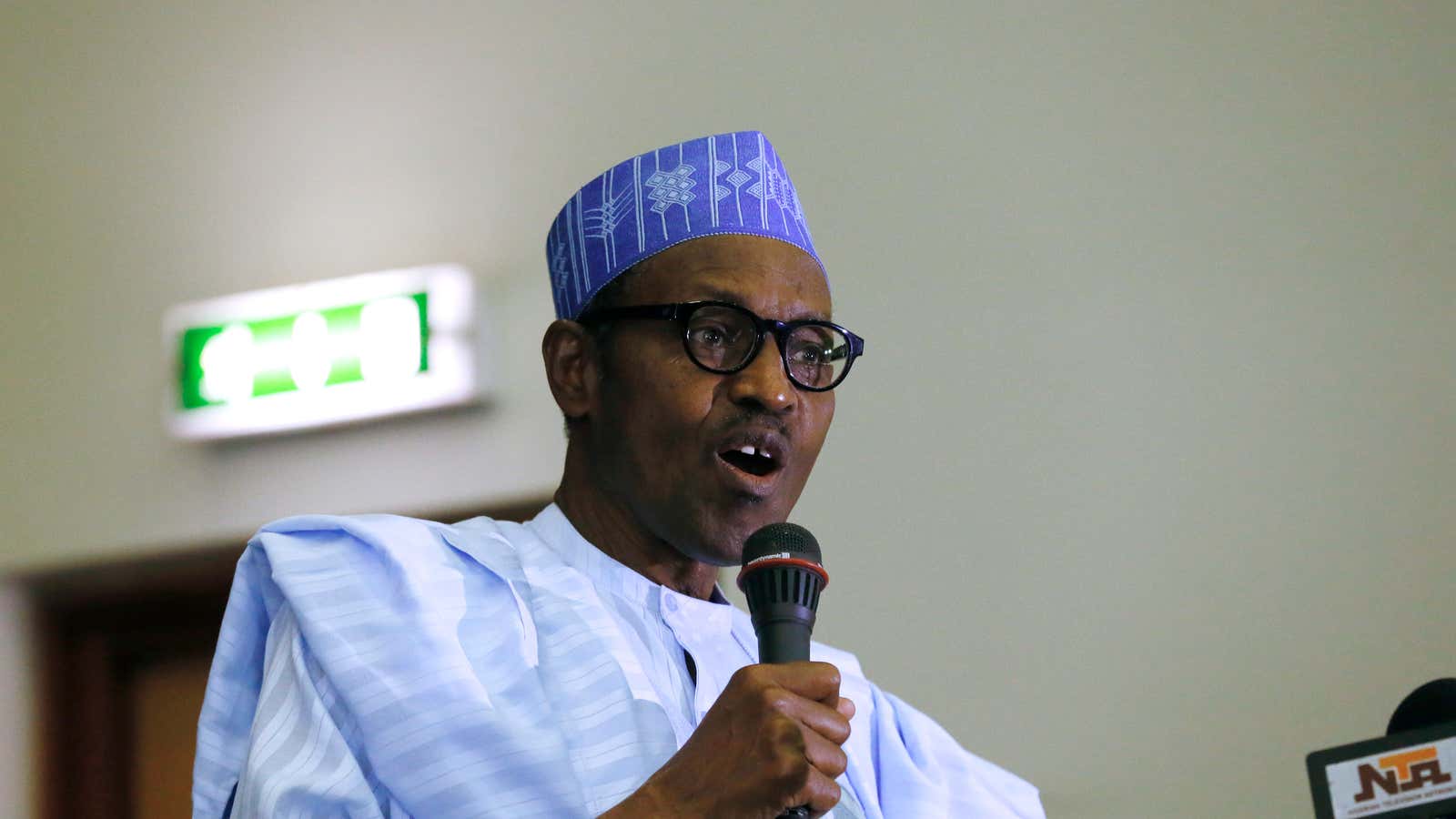This story has been updated.
Foreigners looking to work in Nigeria, Africa’s biggest economy, might be out of luck.
An executive order signed by Nigeria’s president Buhari on Monday (Feb. 5) “prohibits the ministry of interior from giving visas to foreign workers whose skills are readily available in Nigeria.” It’s not a blanket ban though. The executive order states that foreigners will be considered for jobs “where it is certified by the appropriate authority that such expertise is not available in Nigeria.” The executive order also tells government agencies to “give preference to Nigerian companies and firms in the award of contracts.”
In a tweet, president Buhari said the order was in line with his vision of a “Nigeria that produces what it consumes.” As such, the executive order is likely aimed at boosting local production and guaranteeing more patronage for local industries. Buhari also hopes the order will see “local companies get preference” in “planning, designing and executing” science, technology and engineering-related projects. The hope is a boost to local companies will result in a ripple effect for job creation which is crucial given Nigeria’s high unemployment rate.
But the restriction on hiring foreigners could be seen to conflict with the government’s recent move to more open visa policies. Last year, amid business reforms, the government relaxed visa rules and opened additional immigration offices to make it easier to obtain residence permits.
With elections coming up next year, Buhari’s administration might also be betting that being seen to restrict the number of foreign workers will appeal to voters in a country with millions of unemployed people. But the number of unemployed Nigerians that can take up the mainly specialist roles for which expatriates are typically recruited will only be a tiny fraction of the millions of job-seeking Nigerians.
It’s not the first time president Buhari has pushed nationalist and populist views in office. He has railed against Nigerians importing “luxury” foreign goods. It’s a sentiment that has been evident during his administration as well. In 2016, amid a forex crunch, the central bank limited spending on Nigerians’ debit cards once outside the country. Indeed, amid Nigeria’s first recession in two decades, highly-placed government officials, including the senate president, backed a social media campaign tagged “buy Naija to grow the naira.” The rationale, as they saw it, was simple. If Nigerians spent their money buying local products rather than foreign goods, the economy and the troubled currency would benefit more.
